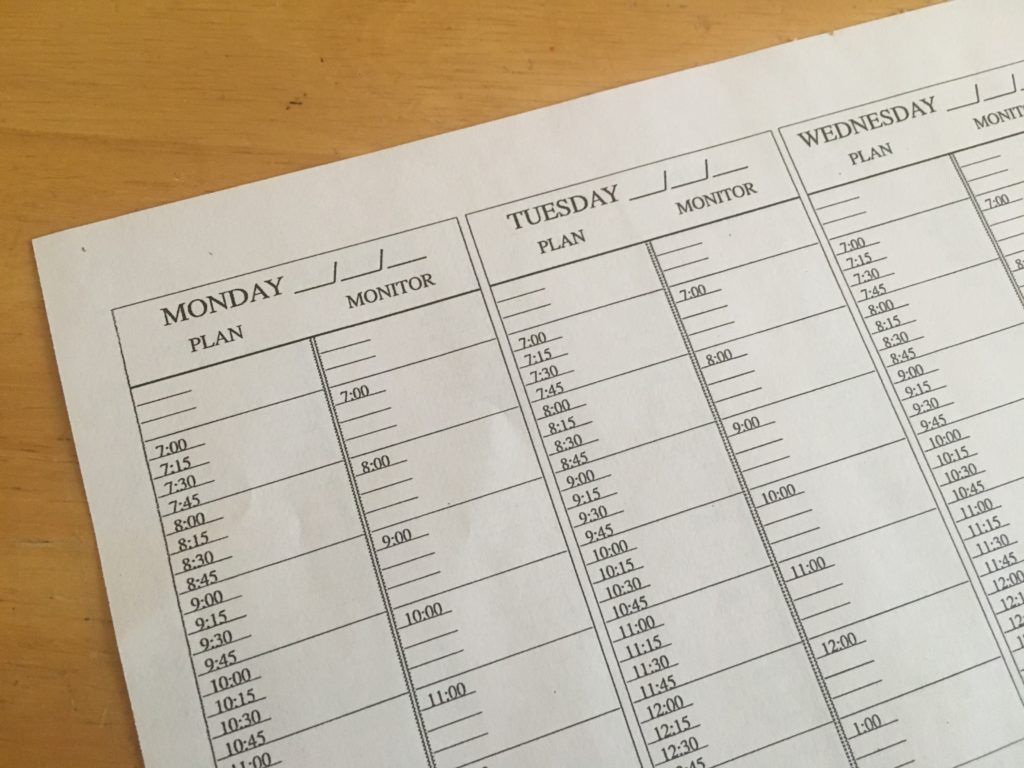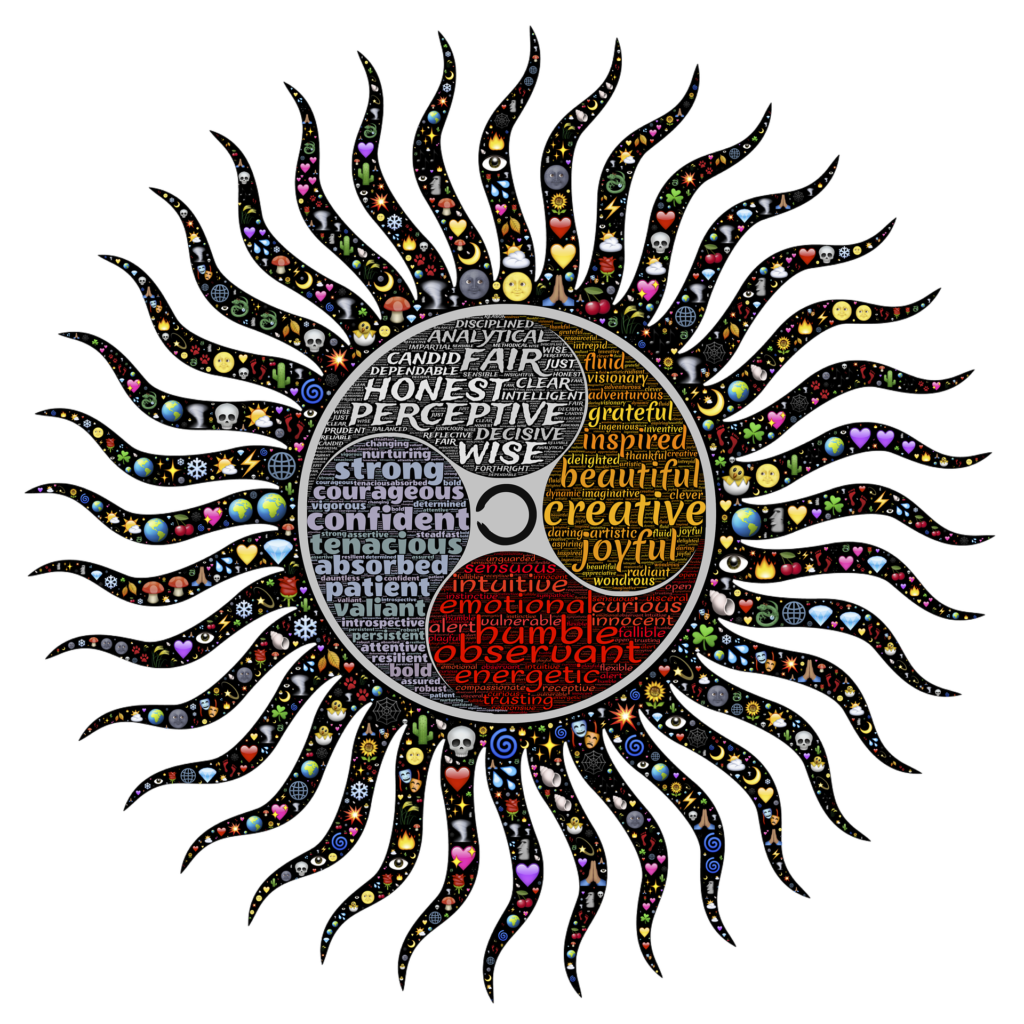It’s not hard to make decisions once you know what your values are.
–Roy E. Disney
I stopped living according to my core values. I knew what I was doing was wrong but thought only about myself and thought I could get away with whatever I wanted to.
–Tiger Woods
Core Values
Want to choose a career or are you changing careers? You are going to need to identify your core values. Interested in a leadership position? You’re likely going to be asked to clarify your values. Got a life coach, mentor, financial advisor, or even a therapist? They’ll probably ask you about your core values. Exploring your spiritual life with a study group or self-guided materials? I’m sure you’ll be asked to prioritize your values. And how about your partner? Do they know what you value the most? Do you? And equally as important, do you “put your money where your mouth is” when it comes to your values? Are you sure?

Similar to the Tiger Woods’ quote, I had a client who found himself in a personal crisis. By his own assessment, he’d drifted away from the things he said he valued, and ended up making decisions that were not aligned with what he deemed most important in his life. When asked about his top 3 values, he was emphatic: his marriage, his kids, and his career. Are you sure? YES. But when he described what happened in a near-miss affair with a co-worker, how he was spending his time drew him away from his core values: He admitted he spent 6-12 hours golfing on the weekends, he was late coming home after stops at the bar, and he was spending time on social media, presumably reading sports headlines but also chatting with a single female co-worker.
Apparently, my client drifted pretty far off course. His kids and his wife had grown distant and he was struggling to stay focused at work, likely due to the after effects of the over-indulgence in alcohol. Now what is it again that you value?
Personal Success

In graduate school I taught a course called, Personal and Academic Success. One of the most interesting activities that we did was a worksheet called Plan/Monitor in which the students would plan their week ahead in fifteen minute blocks and then monitor their time in the same way. The results sounded like this:
- I found out I play video games about 42 hours a week! (Man, that’s a full time job!)
- I lost track of time partying—I think it was somewhere around 75 hours this past week. (No wonder you’re falling behind.)
- I read for classes about 4 hours this week. (And you have 5 classes? That’s about 45 mins, per class, per week. And how are your grades?)
See, these students said they valued education. But do you really value something that you don’t invest your time in?

Conversely, when most people do a values clarification, they almost never list television as a core value. But there it is! Five nights a week for 3-4 hours (15-20 hours/week) plus ample watching on weekends, say 6 or more hours a day? (Just remember that one football games can easily last 3 hours!) A conservative estimate of many people’s viewing habits might easily be around 30 hours a week—almost a full time job! But is that really what is valued? I would argue, No, AND I have NEVER seen “TV” on someone’s list of core values. Ever.
Pick any leadership expert and they will undoubtedly have some treatise on Core Values. But what does this really mean? I like this definition of values by 2 Florida State academicians published in 2017: a set of chosen, strongly-held beliefs that form one’s philosophy and are expressed through feelings, behaviors, and decisions.
Here’s How
Have you ever done a values clarification exercise? If you have, was it recently? Maybe it’s time to do it again. Here’s how:
- Brainstorm a list of your strongly-held beliefs and activities. These may be influenced by your family, your religious background, talents, or things you’ve learned. They may also be those things about which you have strong feelings, like maybe political involvement or volunteer work. Whether performing, fine art, gardening, or sports, if you’ve invested a great deal of time in an activity, it should likely make the list.
- Determine the characteristic associated with your beliefs or activities. If you played sports, it may be that your core value is competition. Or it may be teamwork or play or moving your body. Only you can drill into these types of activities on your list and determine what it really means to you—what is the essence? If you are an actor, maybe your core value is performing or more broadly, perhaps it is exercising your creative self. If you’re really having trouble with these 2 steps, you can explore values clarification lists available online like this one.
- Narrow your list by half. Continue this somewhat agonizing exercise until you have a list of 3-5 values. This is a really tough challenge.
The challenge of a values clarification is to claim these core values by placing them at the center of your life.
-MessyMarvelous

Amy wrote about a values clarification here. Her strategy is to write 10 core values on index cards then put them in order of importance. Regardless of the steps you employ, the most important actionable step is to closely examine your top core values and reflect on where you spend your time, energy, and resources. Are they congruent? Or are you like the folks doing the plan/monitor exercise and not putting any energy into the 5 things you identify as your core values? The challenge of a values clarification is to claim these core values by placing them at the center of your life. At the core of yourself.
Accountability

The finally challenge is how to keep yourself accountable. Unfortunately, most of us get a nice sense of satisfaction, pat our own backs, then put it away and forget about it. How about a different strategy? Post it somewhere you’ll see it. Then move it around because after a short time, we no longer see what is right in front of us. How about put it in your calendar to revisit on a monthly basis? There are also creative ways: If family is #1, then put their picture on your golf bag, television, or your lock screen on your phone. Some people create a symbolic image to use as a reminder. It is similar to the reason that many people get tattoos—as an artistic reminder of something important.
Drift back to your core self
Listen, we all drift. With wear, we ravel along the edges. We forget where we were headed. If you believe at all in chaos theory, then you know how hard it is to keep life on course. But like with most things, we can get better with practice. Over the long haul, reminders help. So in this messy life, give yourself the gift of living a life that is congruent. Claim your core values. It will keep life on a course aimed toward the marvelous.
Rhea

Rhea A. Merck, Ph.D.
I am a Licensed Psychologist with a private practice in Columbia, SC, for over twenty years. Additionally, I teach and provide consulting services at the local University. I would describe myself as a persistent woman, mother of 2 amazing young women, writer, teacher, life-long learner, curious & creative human, lover of life, passionate about making life better every day… for more, visit my outdated website at www.ramphd.com or email me at [email protected]
Citation: Fritz, M.R. & Guthrie, K.L. (2017). Values clarification: Essential for leadership training. Journal of Leadership Education, 16(1), 47-63. doi: 10.12806/V16/l1R4
Photo creds: on Instagram–cover image by Yuri_B; compass and direction signs by geralt; mandala image by John Hain from Pixabay
WE WROTE A BOOK!

(And we think it is beautiful!)
You can order a copy from the Shop here on our website, order from Amazon, or contact your local independent bookstore to get you a copy.
No one is too young or too old to develop or refine your Adulting Skills!


Thank you very much for this beautiful article. I really enjoy reading this. I appreciate your thoughts and idea . Well done.